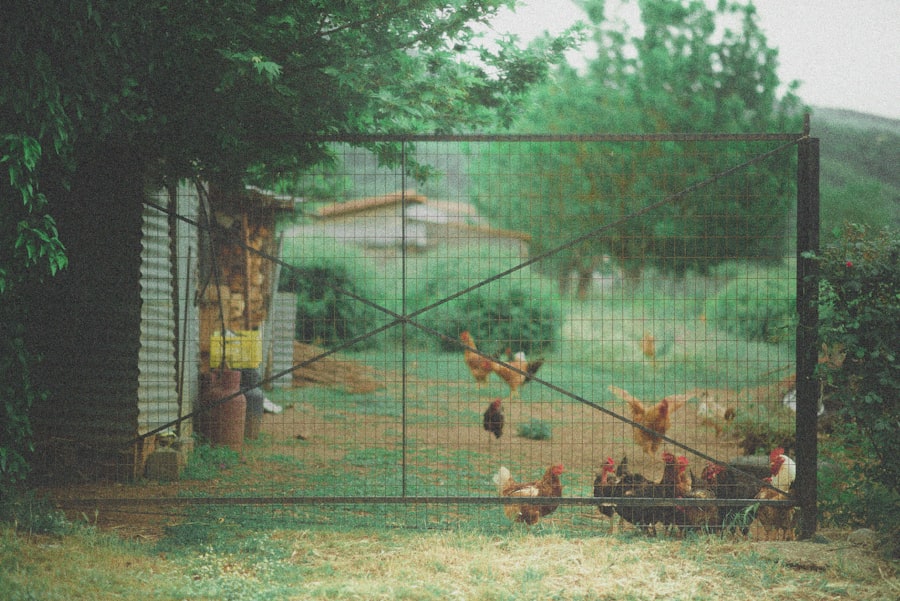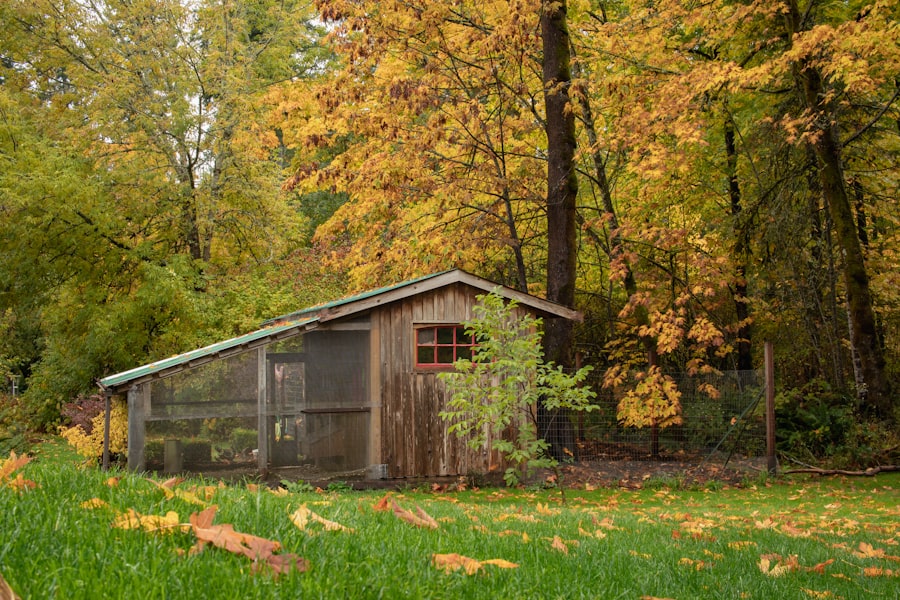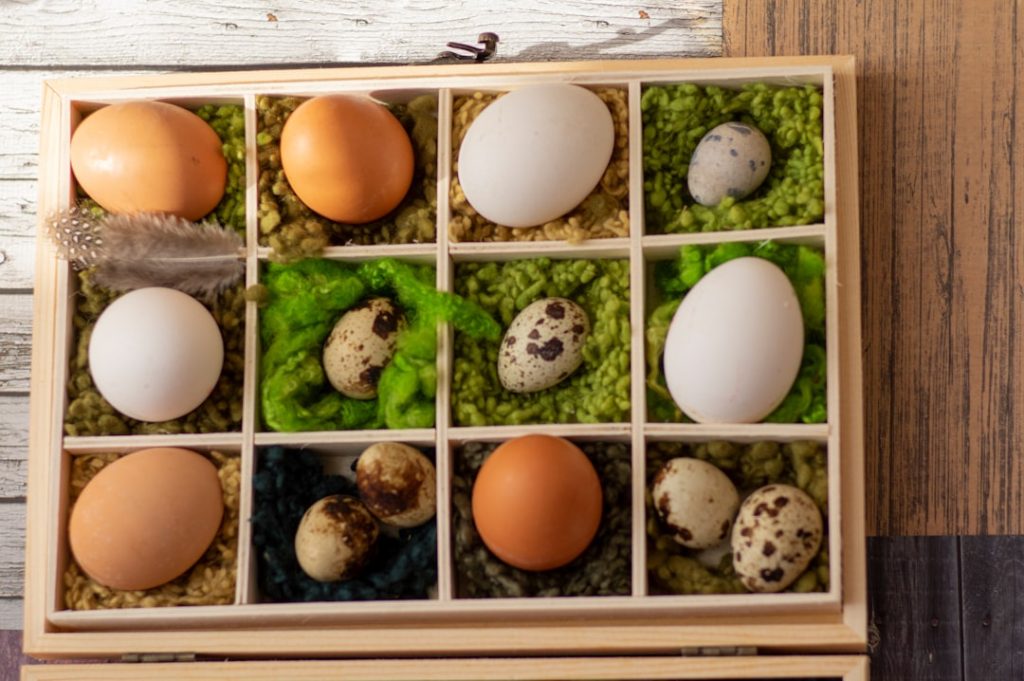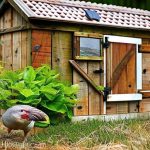Keeping chickens indoors can be necessary for several reasons. One primary concern is protection from predators such as foxes, raccoons, and birds of prey, which pose a significant threat to chickens. Indoor housing also shields chickens from extreme weather conditions, including harsh winters and scorching summers, which can be detrimental to their health.
Furthermore, a controlled indoor environment can help prevent the spread of diseases and parasites that outdoor chickens may be exposed to, minimizing the risk of illness and infestations. Compliance with local regulations and ordinances is another important factor in keeping chickens inside. Many urban and suburban areas have restrictions on outdoor chicken-keeping due to concerns about noise, odor, and sanitation.
In these cases, indoor housing may be a legal requirement. Additionally, keeping chickens inside can be a practical solution for those with limited outdoor space, such as urban dwellers or apartment residents who lack suitable areas for chickens to roam freely. Understanding the need for indoor chicken housing involves considering various factors, including safety, weather protection, disease prevention, and compliance with local regulations.
By providing a clean and controlled environment, chicken owners can ensure the safety, health, and overall well-being of their flock while adhering to legal requirements and accommodating space limitations.
Table of Contents
- 1 Factors to consider when deciding how long to keep chickens inside
- 2 The importance of providing adequate space and enrichment for indoor chickens
- 3 Tips for maintaining the health and well-being of indoor chickens
- 4 Transitioning chickens from indoor to outdoor living
- 5 Monitoring the behavior and activity levels of indoor chickens
- 6 Consulting with a veterinarian for guidance on indoor chicken care
- 7 FAQs
- 7.1 What is the recommended age to keep chickens inside?
- 7.2 How long should chickens be kept inside before being allowed outside?
- 7.3 What are the reasons for keeping chickens inside for a certain period of time?
- 7.4 What are the potential risks of letting chickens outside too early?
- 7.5 How can I ensure a smooth transition for my chickens from inside to outside?
Key Takeaways
- Keeping chickens inside can protect them from predators, extreme weather, and diseases.
- Factors to consider when deciding how long to keep chickens inside include the weather, predator activity, and the health of the chickens.
- Providing adequate space and enrichment for indoor chickens is important for their physical and mental well-being.
- Maintaining the health and well-being of indoor chickens involves regular cleaning, proper nutrition, and monitoring for signs of illness.
- Transitioning chickens from indoor to outdoor living should be done gradually to allow them to acclimate to the new environment.
- Monitoring the behavior and activity levels of indoor chickens can help identify any issues or health concerns.
- Consulting with a veterinarian for guidance on indoor chicken care can provide valuable insights and support for keeping chickens healthy and happy indoors.
Factors to consider when deciding how long to keep chickens inside
Age of the Chickens
Young chicks are more vulnerable to predators and extreme weather conditions, so it may be necessary to keep them inside until they are old enough to fend for themselves outdoors.
Breed and Environmental Factors
The breed of the chickens can also influence how long they should be kept inside. Some breeds are more resilient and adaptable to outdoor conditions, while others may require more time to acclimate to their new environment. Additionally, the season and weather patterns play a significant role in determining how long to keep chickens inside. Harsh winters or scorching summers may necessitate keeping chickens inside for longer periods to protect them from extreme temperatures and inclement weather.
Purpose of Raising Chickens and Availability of Outdoor Space
The purpose of raising chickens can also impact how long they should be kept inside. If the chickens are primarily raised for egg production, they may need to be kept inside for longer periods to ensure consistent laying and optimal egg quality. On the other hand, if the chickens are raised for meat production, they may only need to be kept inside for a shorter duration before being transitioned to outdoor living. Furthermore, the availability of outdoor space and the presence of predators in the area are important considerations when deciding how long to keep chickens inside.
The importance of providing adequate space and enrichment for indoor chickens

Providing adequate space and enrichment for indoor chickens is crucial for their physical and psychological well-being. Chickens are naturally active animals that require space to move around, stretch their wings, and engage in natural behaviors such as scratching and dust bathing. Therefore, it is essential to provide them with enough space to exhibit these natural behaviors indoors.
Additionally, providing enrichment such as perches, nesting boxes, and toys can help prevent boredom and reduce stress in indoor chickens. Enrichment activities such as hanging treats or providing objects for pecking can also stimulate their natural instincts and provide mental stimulation. Furthermore, adequate space and enrichment can also help prevent behavioral issues such as feather pecking and aggression among indoor chickens.
When chickens are confined to limited space without adequate enrichment, they may exhibit destructive behaviors such as feather pecking or aggression towards other birds. Providing them with enough space to move around and engage in natural behaviors can help reduce these negative behaviors and promote a harmonious living environment. Moreover, adequate space and enrichment can also contribute to the overall health of indoor chickens by reducing stress and promoting physical activity.
In conclusion, the importance of providing adequate space and enrichment for indoor chickens cannot be overstated as it directly impacts their physical health, mental well-being, and overall quality of life.
Tips for maintaining the health and well-being of indoor chickens
Maintaining the health and well-being of indoor chickens requires careful attention to their diet, hygiene, and overall care. One important tip is to provide a balanced diet that meets their nutritional needs. A diet consisting of high-quality poultry feed supplemented with fresh fruits, vegetables, and occasional treats can help ensure that indoor chickens receive essential nutrients for optimal health.
Additionally, access to clean water at all times is crucial for hydration and overall well-being. Regular cleaning of the coop or indoor living space is also essential for maintaining the health of indoor chickens. Keeping the living area clean and free from droppings, debris, and moisture can help prevent the spread of diseases and parasites.
Furthermore, regular health checks and monitoring of indoor chickens are important for early detection of any potential health issues. Observing their behavior, appetite, and physical condition can provide valuable insights into their overall health status. Additionally, providing regular opportunities for exercise and mental stimulation through enrichment activities can contribute to their well-being.
Lastly, seeking guidance from a veterinarian experienced in poultry care can provide valuable insights and recommendations for maintaining the health and well-being of indoor chickens. By following these tips and implementing a comprehensive care routine, you can ensure that indoor chickens remain healthy, happy, and thriving in their indoor environment.
Transitioning chickens from indoor to outdoor living
Transitioning chickens from indoor to outdoor living requires careful planning and consideration to ensure a smooth adjustment process. One important step is gradually introducing outdoor elements to indoor chickens to acclimate them to their new environment. This can include gradually increasing their exposure to natural light, fresh air, and outdoor sounds before allowing them full access to the outdoor space.
Additionally, providing a secure outdoor enclosure or run can help protect them from predators while they adjust to their new surroundings. Furthermore, monitoring their behavior and activity levels during the transition period is important for identifying any signs of stress or discomfort. Observing how they interact with outdoor elements such as grass, soil, and other animals can provide valuable insights into their adjustment process.
Additionally, providing access to shaded areas and fresh water outdoors is essential for their comfort and well-being during the transition period. Moreover, gradually increasing their outdoor time while still providing access to their familiar indoor living space can help ease the transition process. This gradual approach allows them to become familiar with their new outdoor environment while still having the option to retreat indoors if needed.
Ultimately, transitioning chickens from indoor to outdoor living requires patience, observation, and careful management to ensure a successful adjustment process.
Monitoring the behavior and activity levels of indoor chickens

Understanding Behavior and Health
Observing the behavior of indoor chickens is crucial for assessing their overall well-being and identifying potential issues. By monitoring their eating habits, vocalizations, social interactions, and movement patterns, you can gain valuable insights into their physical health and mental state. Any changes in behavior, such as decreased appetite, lethargy, aggression, or abnormal vocalizations, may indicate underlying health issues or stress.
Assessing Activity Levels and Mental Stimulation
Monitoring the activity levels of indoor chickens is also essential for evaluating their mental stimulation and physical well-being. By observing their scratching, dust bathing, perching, and exploration of their environment, you can determine if they are engaging in natural behaviors. A lack of activity or reduced engagement in these behaviors may indicate boredom or discomfort in their indoor environment.
Observing the social dynamics within a flock is vital for identifying any signs of aggression or bullying among birds. Maintaining a harmonious social environment is crucial for the overall well-being of indoor chickens. Regular observation and monitoring of behavior and activity levels can help identify potential issues early on, allowing for timely intervention or adjustments in their care routine. By staying attentive to their behavior and activity levels, you can ensure that indoor chickens remain healthy, happy, and thriving in their indoor environment.
Consulting with a veterinarian for guidance on indoor chicken care
Consulting with a veterinarian experienced in poultry care can provide valuable guidance and recommendations for maintaining the health and well-being of indoor chickens. A veterinarian can offer insights into proper nutrition, disease prevention, parasite control, vaccination schedules, and overall care routines specific to indoor chicken management. Additionally, a veterinarian can provide guidance on identifying signs of illness or distress in indoor chickens and offer recommendations for appropriate treatment or intervention.
Regular check-ups with a veterinarian can also help ensure that indoor chickens receive necessary vaccinations and preventive care to maintain their health. Furthermore, a veterinarian can offer advice on environmental enrichment, behavioral management, and overall welfare considerations specific to indoor chicken housing. Their expertise can help address any specific challenges or concerns related to raising chickens indoors.
Overall, consulting with a veterinarian for guidance on indoor chicken care is essential for ensuring that they receive optimal care tailored to their specific needs as indoor poultry. Their expertise can provide valuable insights into maintaining the health, well-being, and overall quality of life for indoor chickens.
If you’re considering keeping chickens inside, you may also be interested in learning about the Producers Pride Sentinel Chicken Coop. This coop is designed to provide a safe and comfortable environment for your chickens, whether they are kept inside or outside. Check out this article to learn more about this innovative coop and how it can benefit your flock.
FAQs
What is the recommended age to keep chickens inside?
The recommended age to keep chickens inside is typically 6-8 weeks. This allows them to develop their feathers and build up their immune systems before being exposed to the outdoor elements.
How long should chickens be kept inside before being allowed outside?
Chickens should be kept inside for about 6-8 weeks before being allowed outside. This gives them enough time to grow and develop before being exposed to the outdoor environment.
What are the reasons for keeping chickens inside for a certain period of time?
Keeping chickens inside for a certain period of time allows them to develop their feathers, build up their immune systems, and become acclimated to their new environment before being exposed to the outdoor elements. It also helps to protect them from predators and harsh weather conditions.
What are the potential risks of letting chickens outside too early?
Letting chickens outside too early can expose them to predators, harsh weather conditions, and potential diseases. It can also lead to stress and a higher mortality rate among the chickens.
How can I ensure a smooth transition for my chickens from inside to outside?
To ensure a smooth transition for your chickens from inside to outside, gradually introduce them to the outdoor environment by providing a secure outdoor space, monitoring their behavior, and gradually increasing their outdoor time. This will help them adjust and thrive in their new environment.
Meet Walter, the feathered-friend fanatic of Florida! Nestled in the sunshine state, Walter struts through life with his feathered companions, clucking his way to happiness. With a coop that’s fancier than a five-star hotel, he’s the Don Juan of the chicken world. When he’s not teaching his hens to do the cha-cha, you’ll find him in a heated debate with his prized rooster, Sir Clucks-a-Lot. Walter’s poultry passion is no yolk; he’s the sunny-side-up guy you never knew you needed in your flock of friends!







